Last week, over 600 marketing and technology leaders gathered at Taj Lands End in Mumbai for the world’s first gathering on Agentic Marketing. An event that felt less like a typical conference and more like a necessary conversation the industry has been putting off for too long.
Hosted by Netcore in partnership with Google Cloud and curated by ET BrandEquity, the day was packed with honest discussions about the future of marketing in the age of Agentic AI.
The Problem Everyone Knows But Few Address
The day opened with a stark reality check from Rajesh Jain, Founder of Netcore: brands are spending 70% of their ad budgets reacquiring customers they’ve already paid to acquire once. Global ad waste has hit $500 billion annually, and it’s not because marketers lack tools—it’s because they have too many of the wrong ones.
The core issues are structural. Campaigns that take days to launch while markets shift in minutes. Personalization that breaks down beyond basic segmentation. Siloed tools that create more complexity than they solve. These aren’t edge cases—they’re the daily reality for most marketing teams.
Key Announcements
Unveiling The Agentic Marketing Stack with Google Cloud
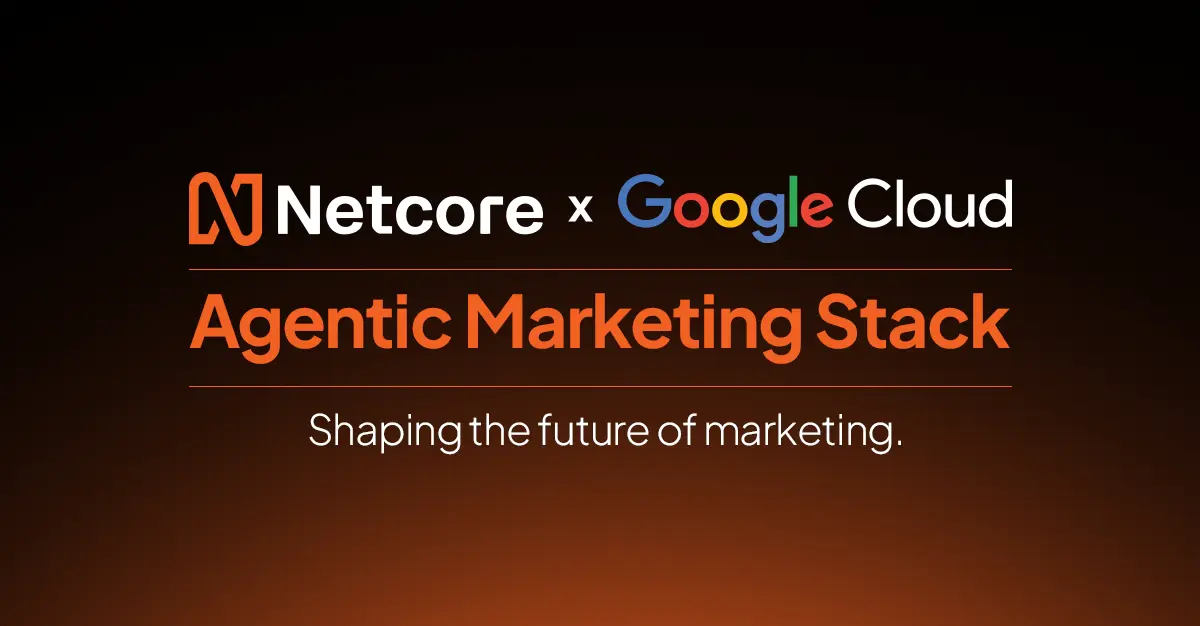
The headline announcement was Netcore and Google Cloud’s Agentic Marketing Stack—a platform built from the ground up around autonomous AI rather than bolting AI features onto existing systems.
What makes it different? Three things stood out:
Real-time orchestration: Instead of batching campaigns and waiting for results, the system continuously learns and adjusts across channels as customer behavior changes.
Composable architecture: Built on Google Cloud’s AI infrastructure (Gemini, Vertex AI, BigQuery), it’s designed to integrate with existing systems rather than requiring a rip-and-replace approach.
Autonomous decision-making: The system doesn’t just surface insights for humans to act on—it makes optimization decisions independently based on defined business outcomes.
Early pilots across BFSI and ecommerce sectors have shown 25-40% performance improvements, with some brands seeing 30% profitability gains through dynamic pricing and personalization. Perhaps more telling: 80% of attendees said they’re planning to experiment with agentic systems in 2026.
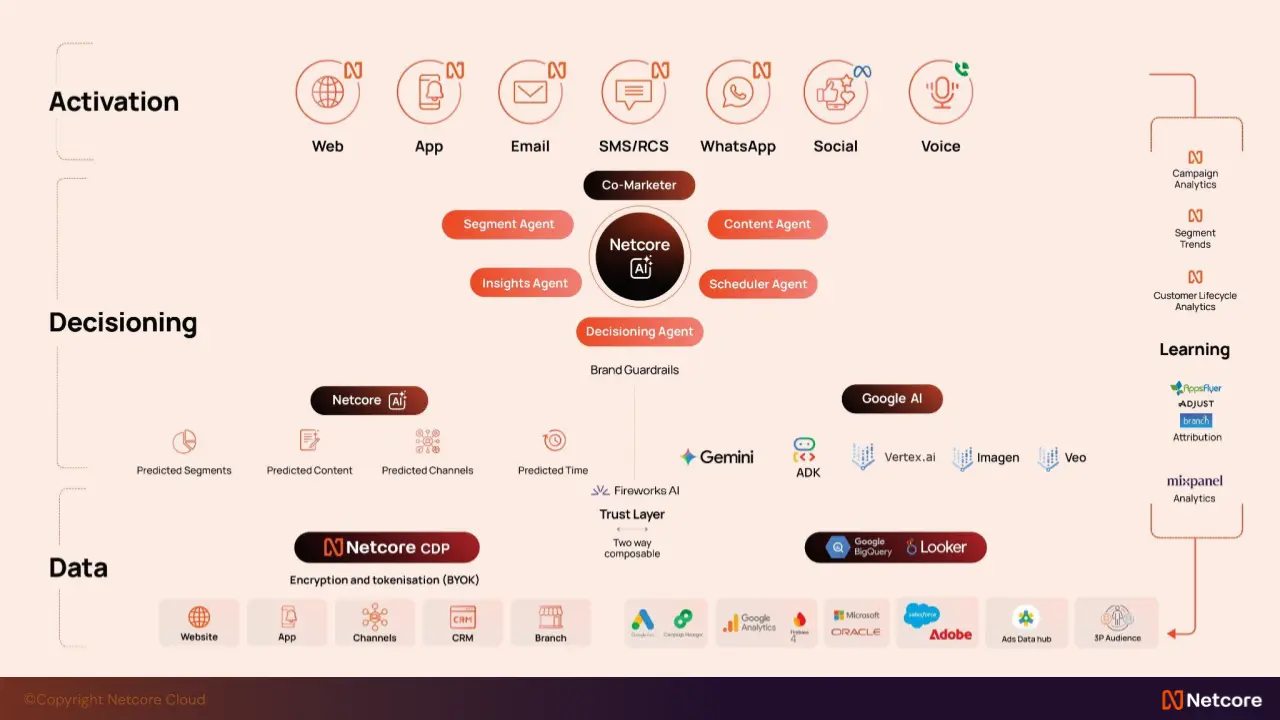
The Variable Pricing Model That Got Everyone Talking
The other major announcement was Netcore’s variable pricing model, which ties a portion of platform fees directly to measurable business results—engagement uplift, conversions, revenue acceleration.
Nishant Arora, SVP at Netcore, gave context for why this matters: “Over 95% of Agentic AI projects are failing to deliver value. Almost all brands are experiencing AI POC fatigue.” The variable pricing model is designed to remove that risk—brands only pay when metrics actually move.
It’s a bold statement, and one that sparked plenty of discussion throughout the day. If autonomous systems truly deliver the results promised, vendors should be willing to bet on outcomes rather than just selling seats.
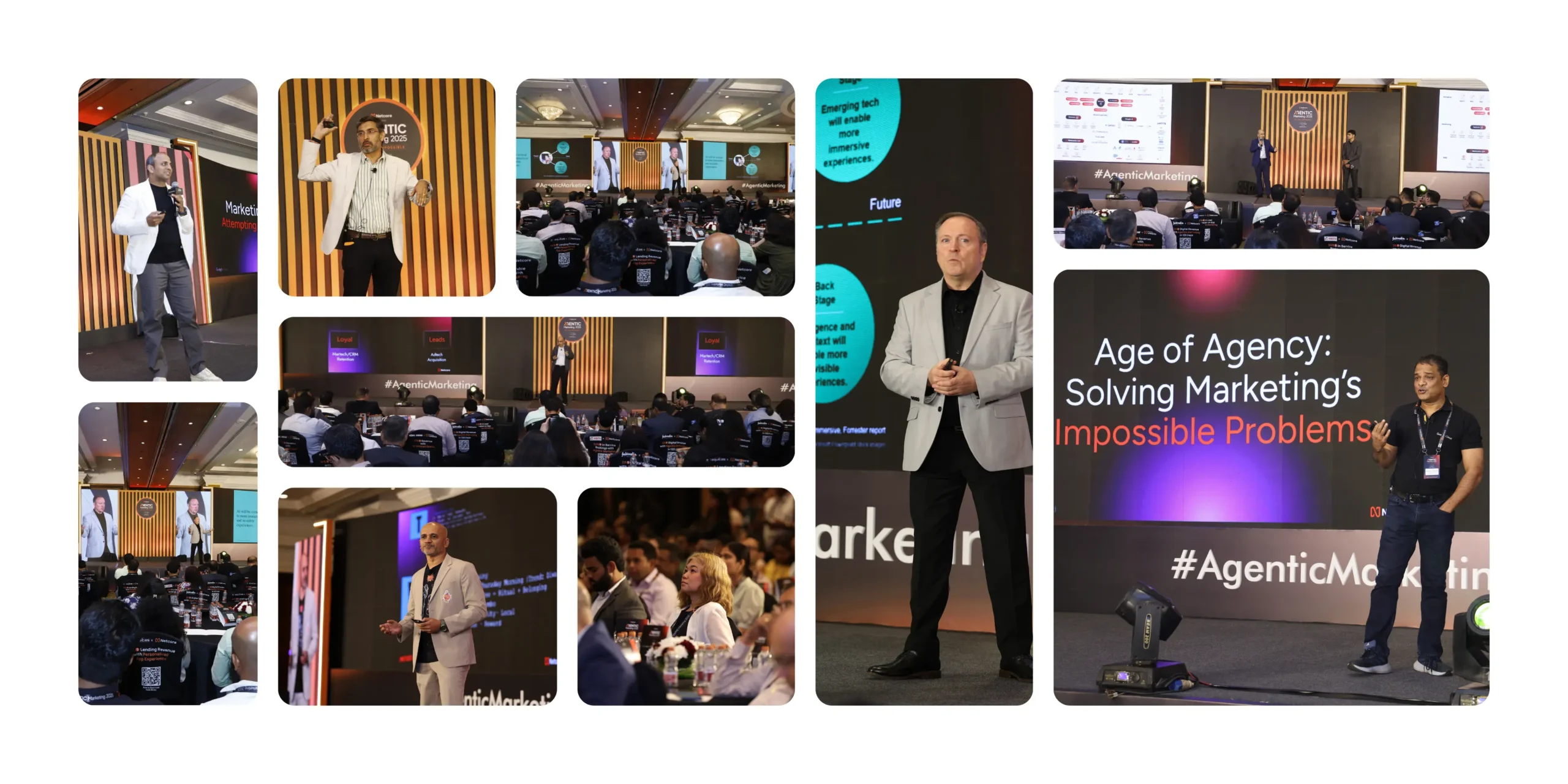
Conversations That Resonated
The real value of the day came from practitioners sharing what’s working:
From BFSI Leaders: How agentic systems are plugging growth leaks from onboarding to cross-sell through intelligent orchestration
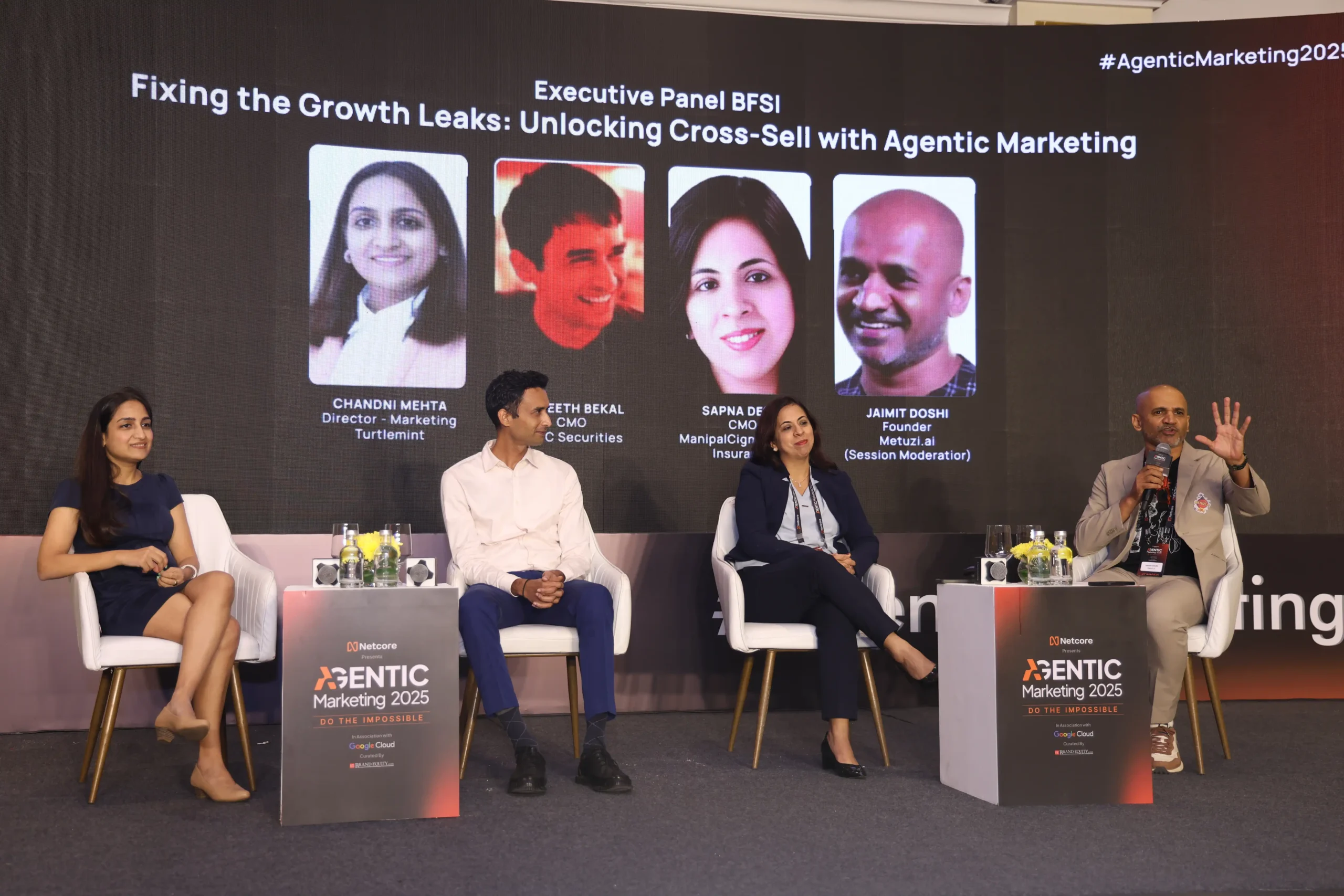
From Ecommerce Brands: How to reduce reacquisition costs by better engaging “resident customers”—people who already trust you but remain under-engaged
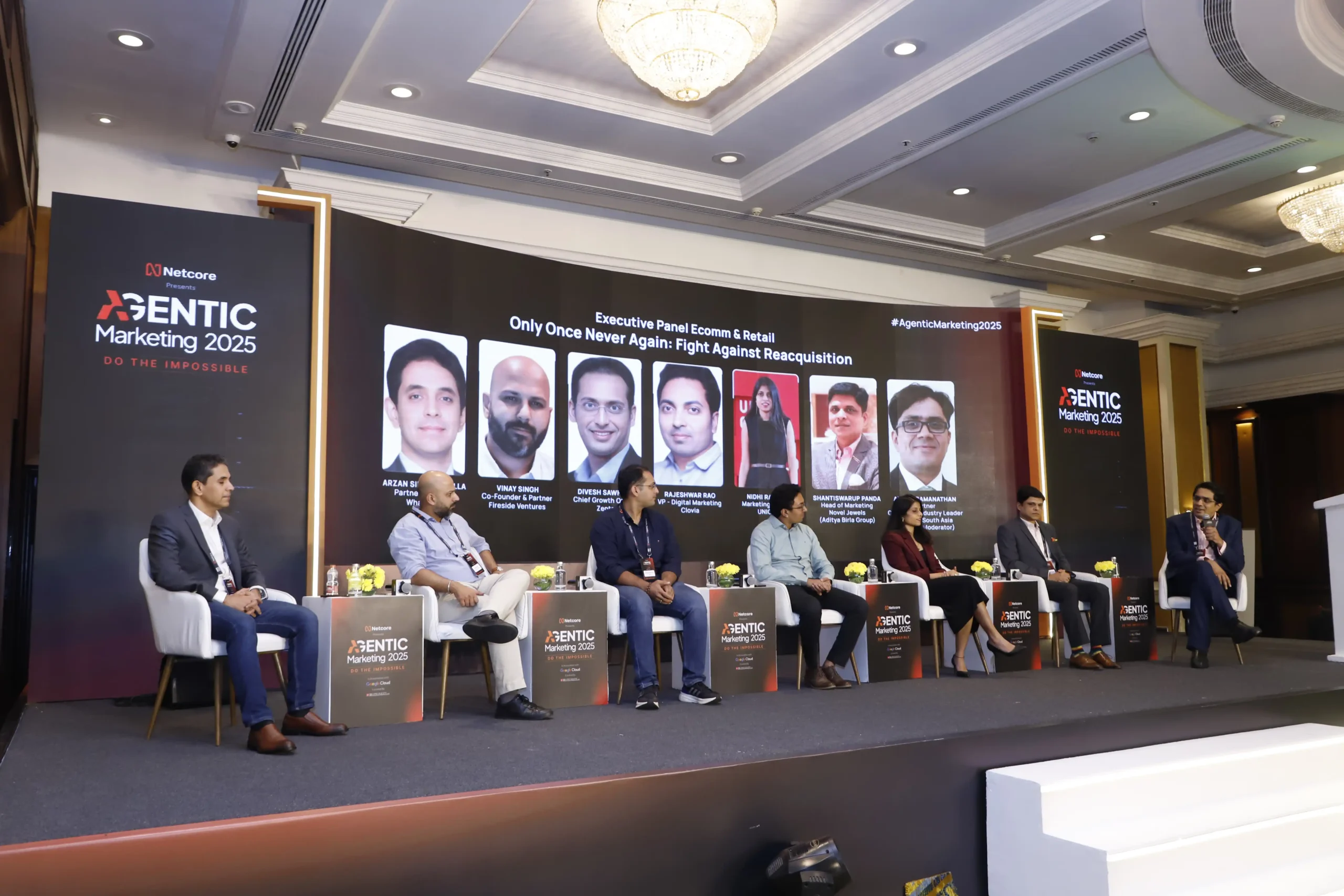
From Large Omnichannel Offline Brands: How to unify customer journeys across online and offline touchpoints in real-time
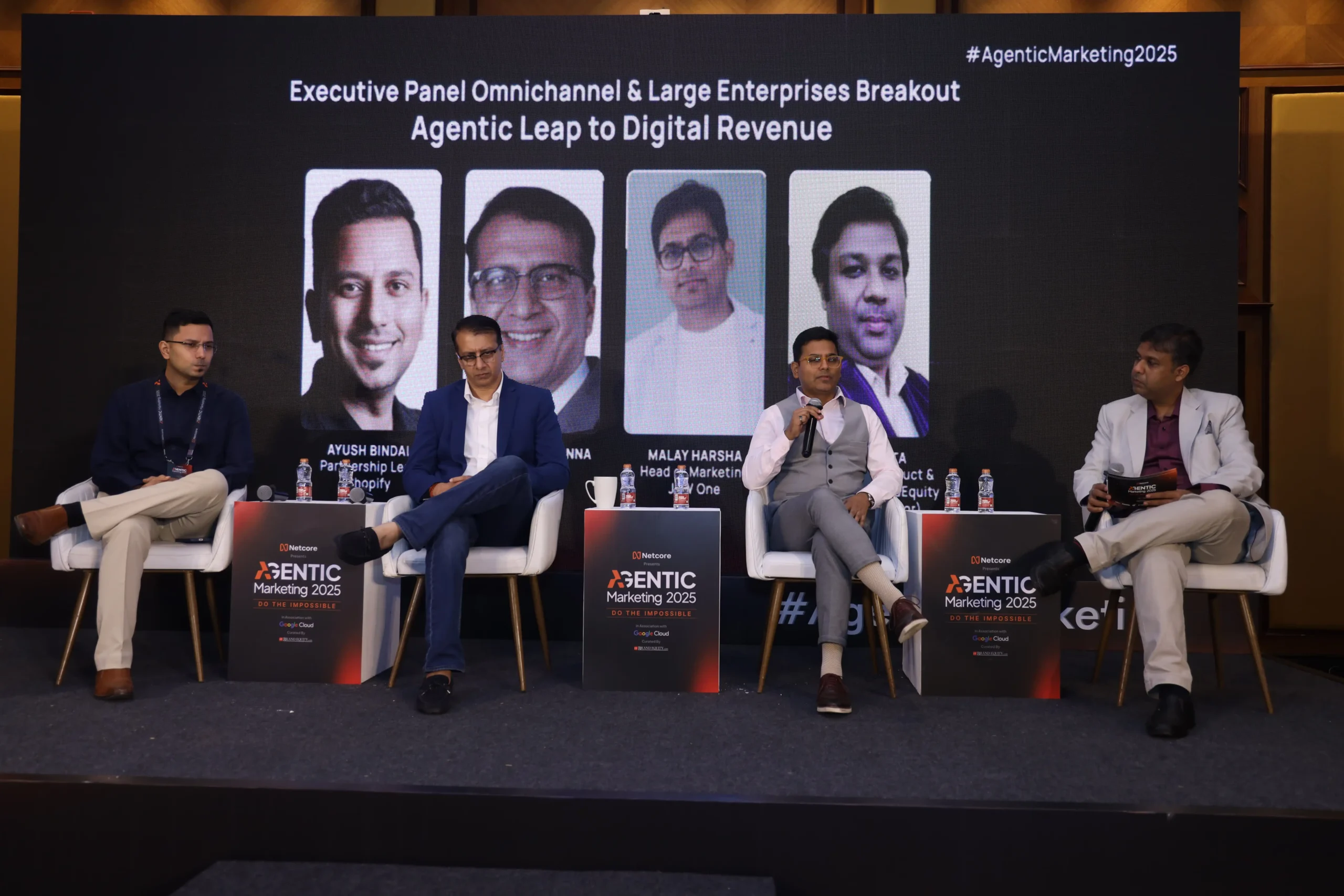
We heard from executives at Indian Hotels, Mahindra Group, Bajaj Markets, Nykaa, Axis Max Life, HDFC Securities, Zepto, and many others—plus speakers from McKinsey, Forrester, EY, and Deloitte provided frameworks and benchmarks, while platform leaders from WhatsApp, Shopify, AppsFlyer, and Jio discussed ecosystem implications.
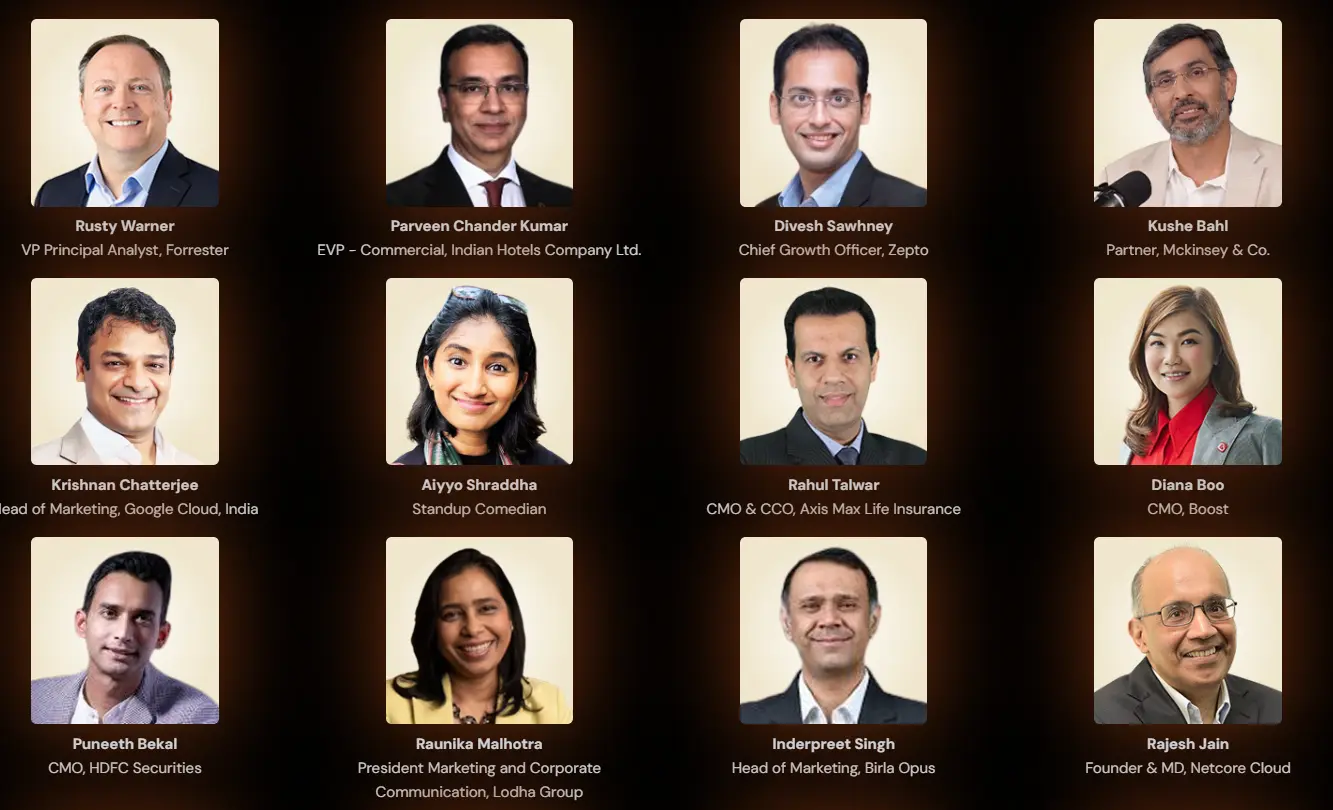
Some of the Esteemed Speakers that presented:
- Rusty Warner – Principal Analyst, Forrester
- Kushe Bahl – Partner, Mckinsey & Co.
- Krishnan Chatterjee – Head of Marketing, Google Cloud India
- Naren Kachroo – Head of GTM AI, Google Cloud India
- Arzan Singpurwalla, Partnership lead, WhatsApp
- Divesh Sawhney, Chief Growth Officer, Zepto
- Vipin Nair, Head of Strategic & Enterprise Business at AppsFlyer
- Shankar Jayaraman, Senior VP, Jio
- Rahul Talwar, CMO & CCO, Axis Max Life Insurance
- Puneeth Bekal, CMO, HDFC Securities
- Siddharth Gopalkrishnan – CCMO, Netcore
- Rajesh Jain – Founder, Netcore
The Agentic Disruptors 30
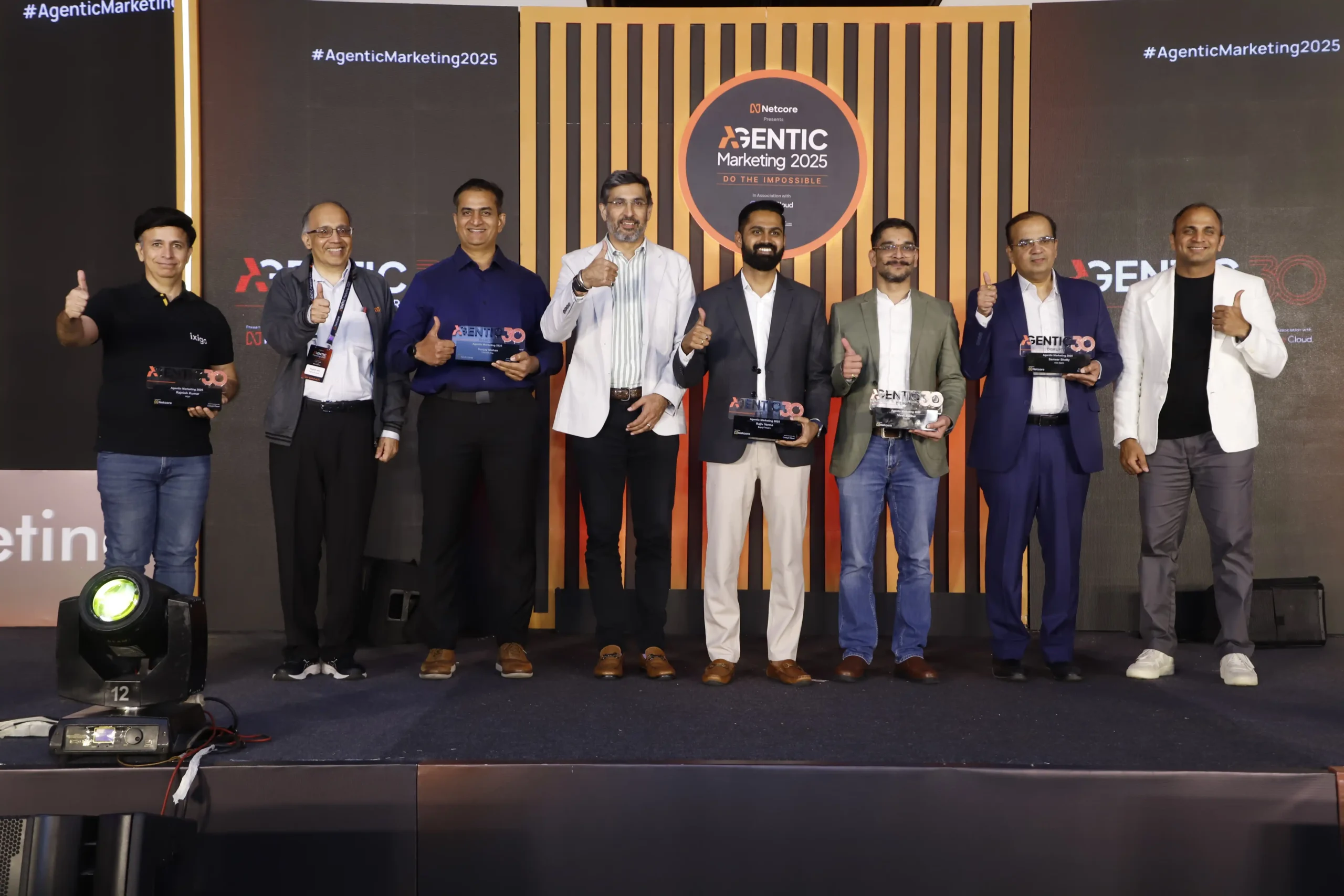
The event also recognized 30 marketing and technology leaders who are actively experimenting with agentic approaches—not waiting for perfect playbooks but learning through iteration. These aren’t just early adopters; they’re practitioners sharing what’s working and what isn’t, which made for some of the most valuable conversations of the day.
The Agentic Disruptors 30 are ahead of the curve in adopting AI and are future-proofing their organisations for the next wave of MarTech transformation. The winners were felicitated at the grand awards ceremony.
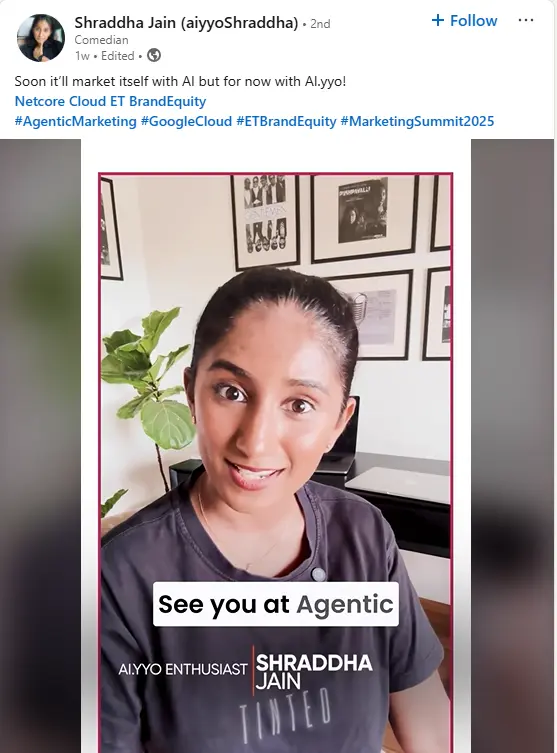
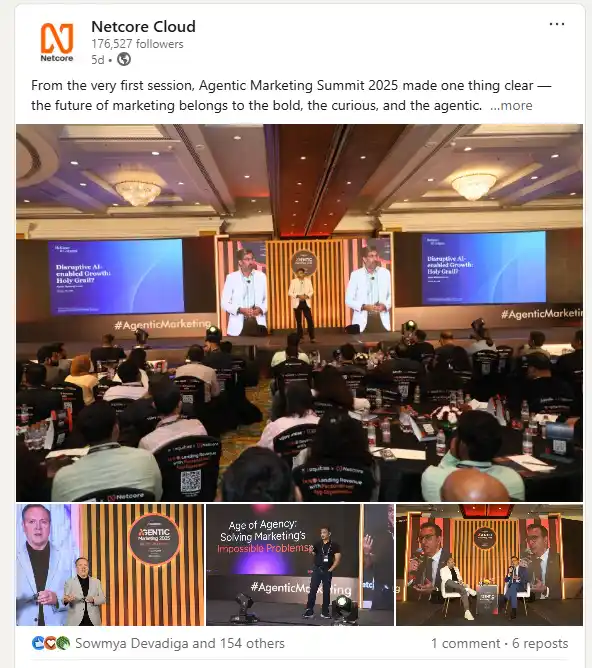
What It Means for Marketing Leaders
A few themes emerged across sessions that are worth paying attention to:
Stop paying for the same customer twice: The focus is shifting from acquisition-at-all-costs to engaging “resident customers”—people who already trust your brand but remain under-engaged. Agentic systems excel at identifying these opportunities in real-time.
Outcomes over outputs: The entire industry is moving away from vanity metrics toward business results. Variable pricing is just one manifestation of this shift, but it’s happening across how campaigns are designed, measured, and optimized.
Interoperability matters: No one’s suggesting brands throw away their existing tech stacks. The conversation was about how autonomous systems can work across platforms, connecting data and orchestrating actions without requiring massive overhauls.
Speed is the new scale: The ability to test, learn, and optimize in real-time is becoming more valuable than the ability to run massive campaigns. Agentic systems excel at this continuous optimization loop.
Looking Ahead
As Kalpit Jain, Group CEO of Netcore, put it: “We’re witnessing the birth of truly autonomous marketing.” Whether that’s hyperbole or prescient depends on execution—both by technology vendors and the marketing organizations adopting these systems.
What’s clear from spending a day in Mumbai with 600+ marketing leaders is that the industry is ready for something transformational, not just incremental improvements to existing workflows, but a fundamental rethinking of how marketing systems should work.
The partnership between Netcore and Google Cloud, backed by outcome-based pricing, is one answer to that question. Time will tell if it’s the right one, but the conversation has definitely shifted from “if” to “how.”
 Growth, decoded: Agentic Marketing Predictions 2026 for consumer markets. Read the report now.
Growth, decoded: Agentic Marketing Predictions 2026 for consumer markets. Read the report now. 









